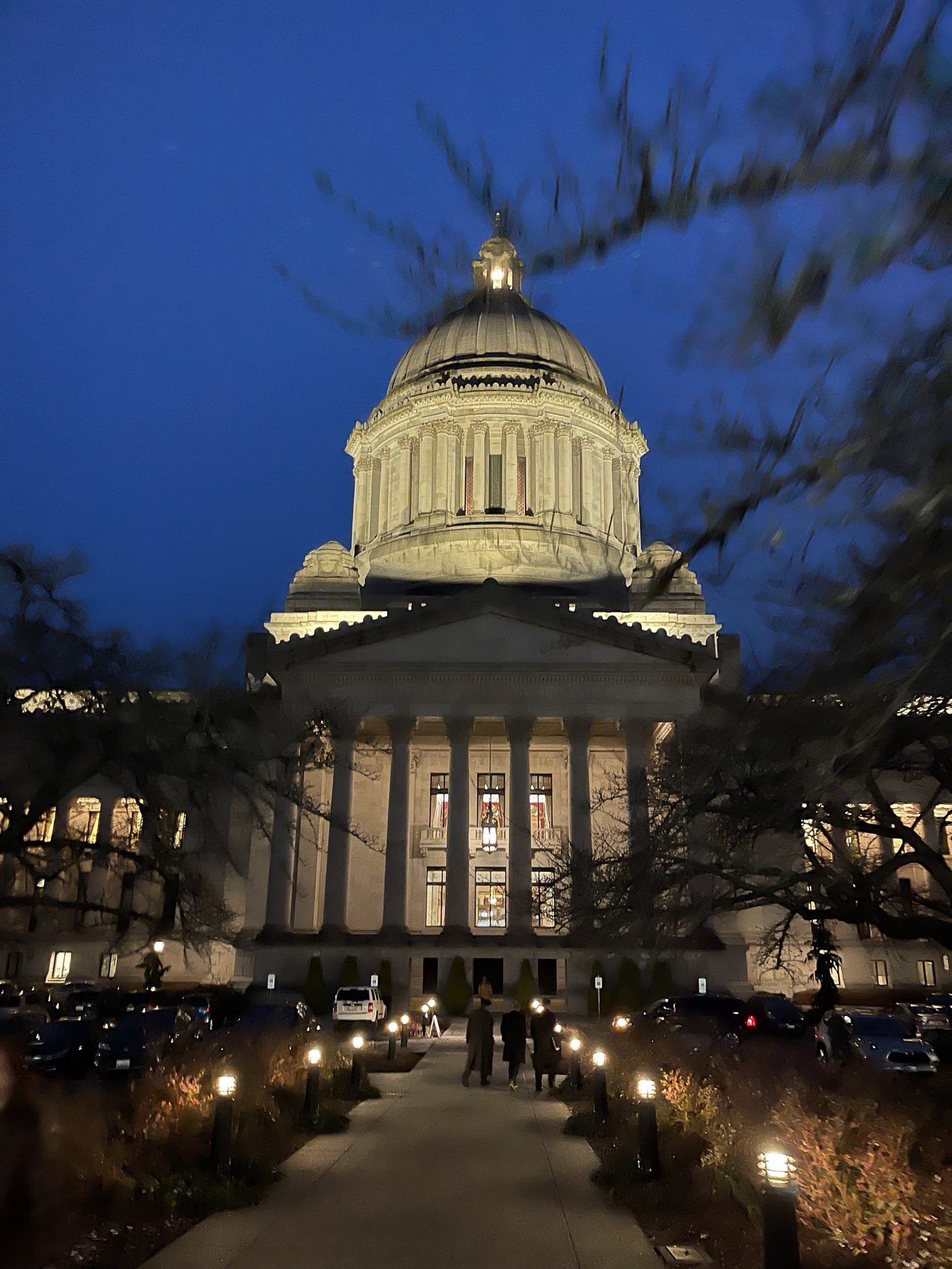Legislative Update #3
A Look at Bills on Zoning for Child Care Centers, Hearing Examiners, Condo Reform, Rent Stabilization (Caps), Lot Splitting, and more.
Today is March 31, the 78th day of the Legislative session, which means there are only 27 days left. The next cut-off comes this Wednesday (April 2nd), when committee reports from the opposite house, except House fiscal committees and Senate Ways & Means and Transportation committees, must be read in.
So, let’s see where things stand.
SB 5509 - Child Care Centers
Leading off my last “Zoning Report” was a piece (Are Child Care Deserts a Land Use (Zoning) Problem?) on some recent zoning enacted by the Snohomish County Council to encourage more child care by expanding the zones in which such uses are permitted. A subscriber wrote in to point out a bill on this topic that I hadn’t mentioned.
SB 5509 would require cities and towns (but not counties) to allow child care centers as an outright use in all zones, except industrial, light industrial, and open space zones, within two years. It also includes language that this requirement does not limit cities and towns from allowing child care centers in industrial and light industrial zones through approval of a conditional use permit (CUP), provided that such facilities would not be in or around “high hazard facilities.”
SB 5509 is scheduled for a public hearing in the House Committee on Appropriations at 1:30 pm on April 3.
Interested in this bill? Here are some helpful links:
Send a Comment to Your Legislator
Sign Up to Testify
Watch the Hearing on TVW
SB 5719 - Local Government Hearing Examiners
Land use decisions for things like preliminary subdivision (plat) approvals, conditional and special use permits, variances, etc. are quasi-judicial matters in Washington State. As such, many local jurisdictions appoint Hearing Examiners to conduct these quasi-judicial hearings in lieu of having such decisions go before their largely volunteer planning commissions and city councils — the objective being to ensure consistent, legally sound decisions resulting from a fair and impartial process. Some jurisdictions even go a step further and require that any appeals of Hearing Examiner decisions go straight to the Superior Court.
As it stands, SB 5719 proposes to allow cities with a population of 2,000 or less along with counties that don’t plan under the Growth Management Act (GMA) to adopt the hearing examiner system to hear and issue decisions on plats and other land use matters. However, the meat of the bill is the requirement that all counties and cities planning under GMA must adopt a hearing examiner system.
It should be noted that Hearing Examiners are often also responsible for hearing matters concerning appeals of administrative decisions, including those for code interpretations, code enforcement violations, etc.
SB 5719 is scheduled for a public hearing at 1:30 pm on April 4 in the House Appropriations Committee. If it has a chance to become law this session, it will need to pass out of Appropriations before the April 8th cutoff for bills to make it out of the opposite house’s fiscal committee.
Interested in this bill? Here are some helpful links:
Send a Comment to Your Legislator
Sign Up to Testify
Watch the Hearing on TVW
HB 1403 - Condo Reform
Legislative Update #2 provided some background and history on the relationship between condo liability and the lack of condos being built in Washington as compared to other parts of the country (and even Vancouver, BC).
HB 1403 would change the warranty requirements for new condominium projects consisting of 12 or fewer units, hopefully encouraging more small-scale condo projects on infill lots. The bill also includes provisions ensuring that Accessory Dwelling Units (ADUs) organized in common-interest communities (condos) are exempt from the RCWs that create the condo liability issues. Presumably, by doing this, the Legislature is hoping to maximize the effect of HB 1337 (2023), which established the requirement that up to two accessory dwelling units be allowed on lots inside the urban growth area, by making it more likely that owners of the principal unit on the lot will build ADUs and condominiumize the units so they can be sold. Again, this would create more affordable homeownership opportunities.
I received a couple of questions about this bill and whether this may apply to single 12-unit maximum projects or whether it could also apply to large projects that restrict the size of each building to no more than 12 units.
My opinion of the bill is that the reference to “a condominium” as used in (4)(a) refers to the organization of a “common interest community,” and that would appear to limit this for use on projects that create 12 total units or less.
Keep reading with a 7-day free trial
Subscribe to PERMITTED WITH CONDITIONS to keep reading this post and get 7 days of free access to the full post archives.


